KSRTC in Troll Medias !!
If you have a strong social presence online, or at least consider yourself to be pretty active in online communities, you may have experienced what many savvy Internet users call “being trolled.”
Here we are publishing some trolls which regarding the KSRTC.
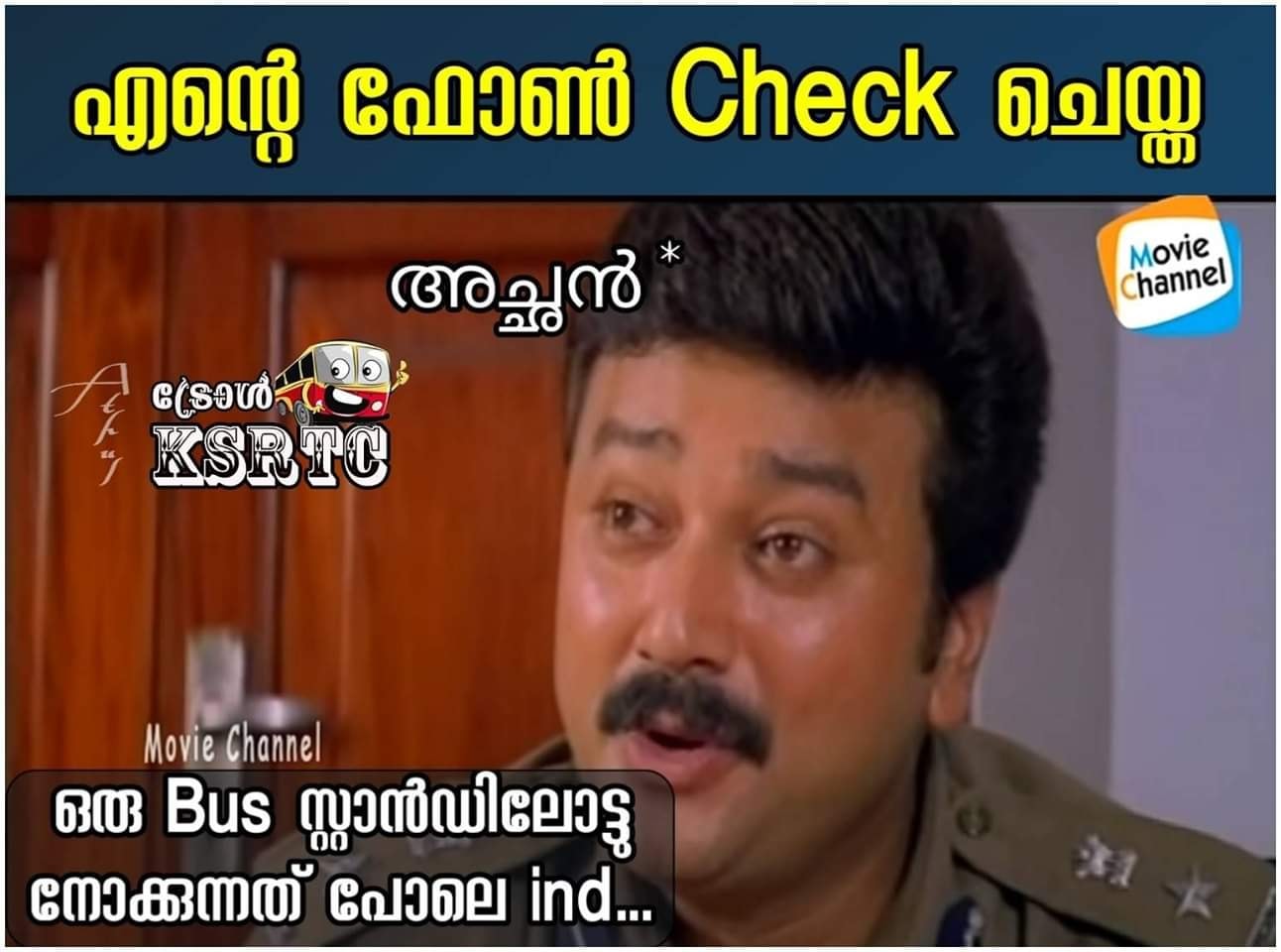
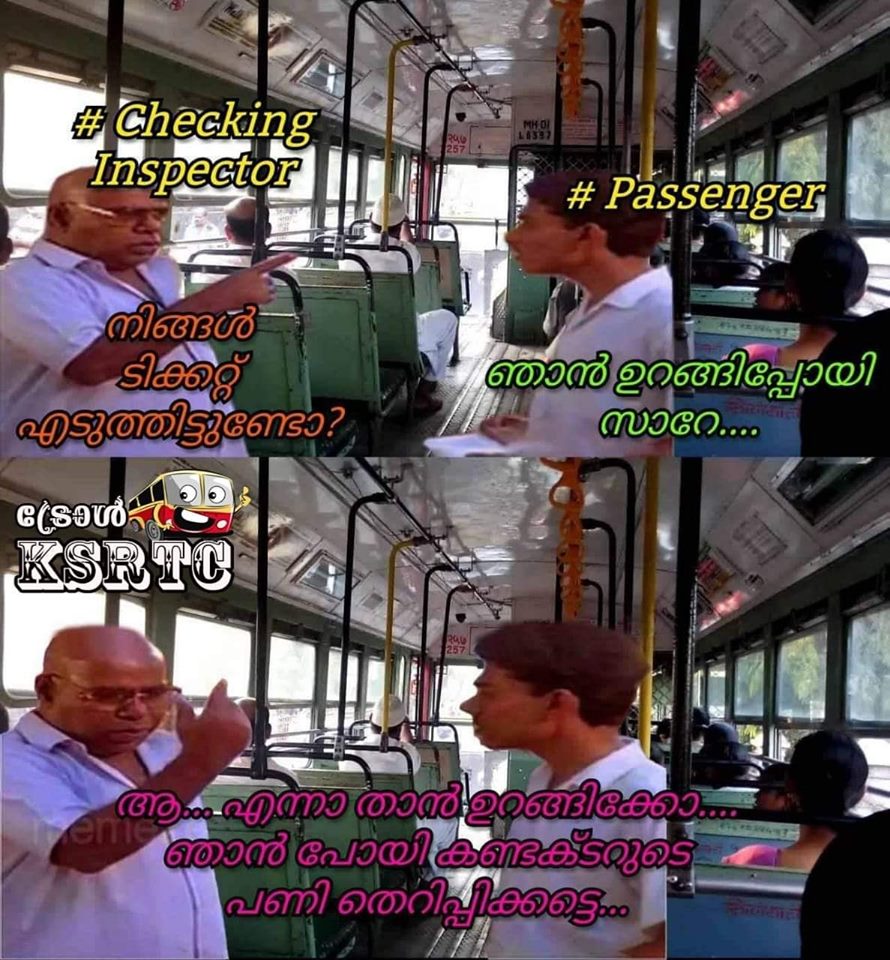

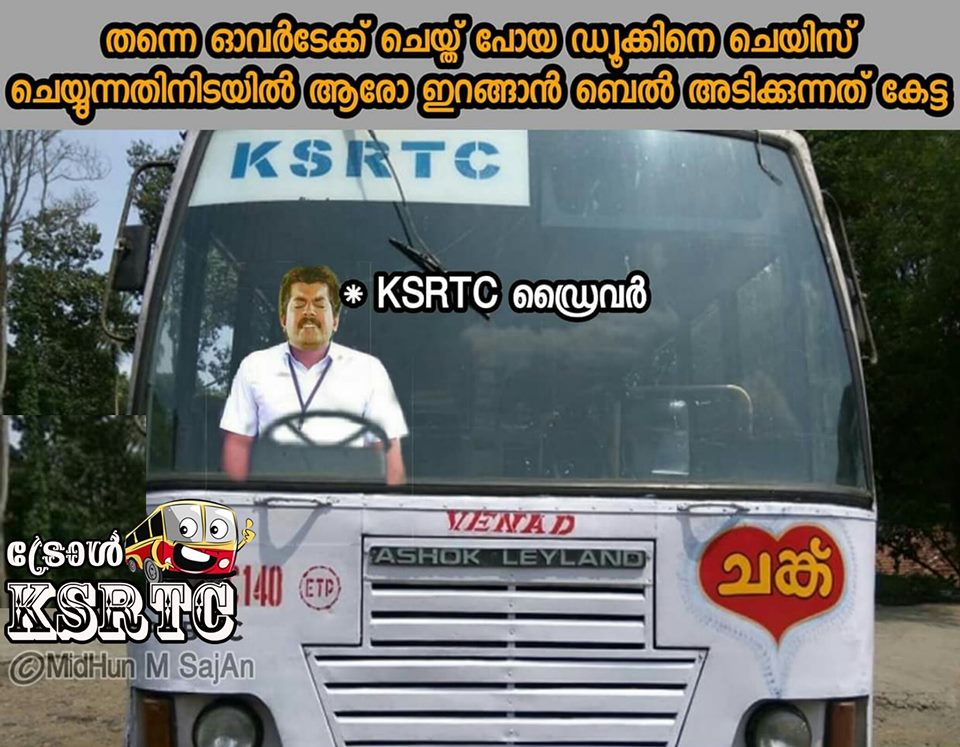
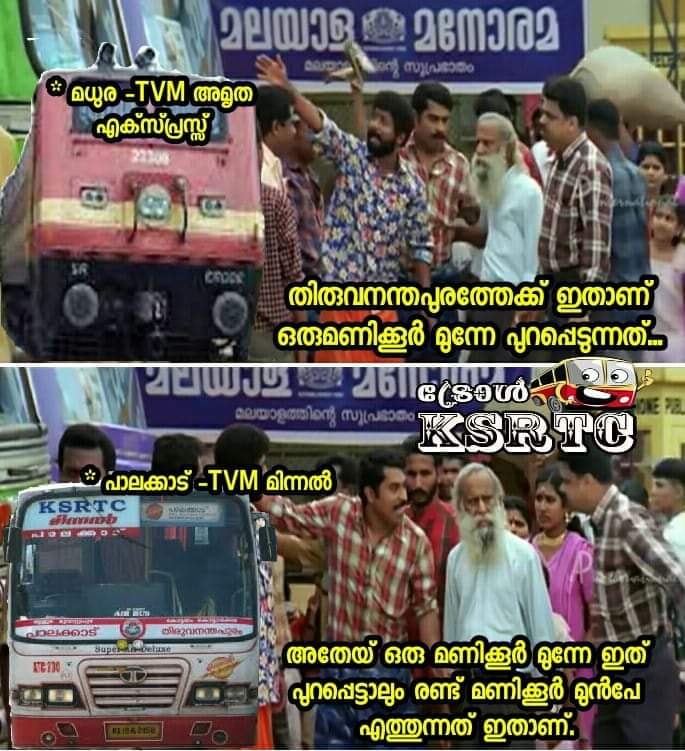
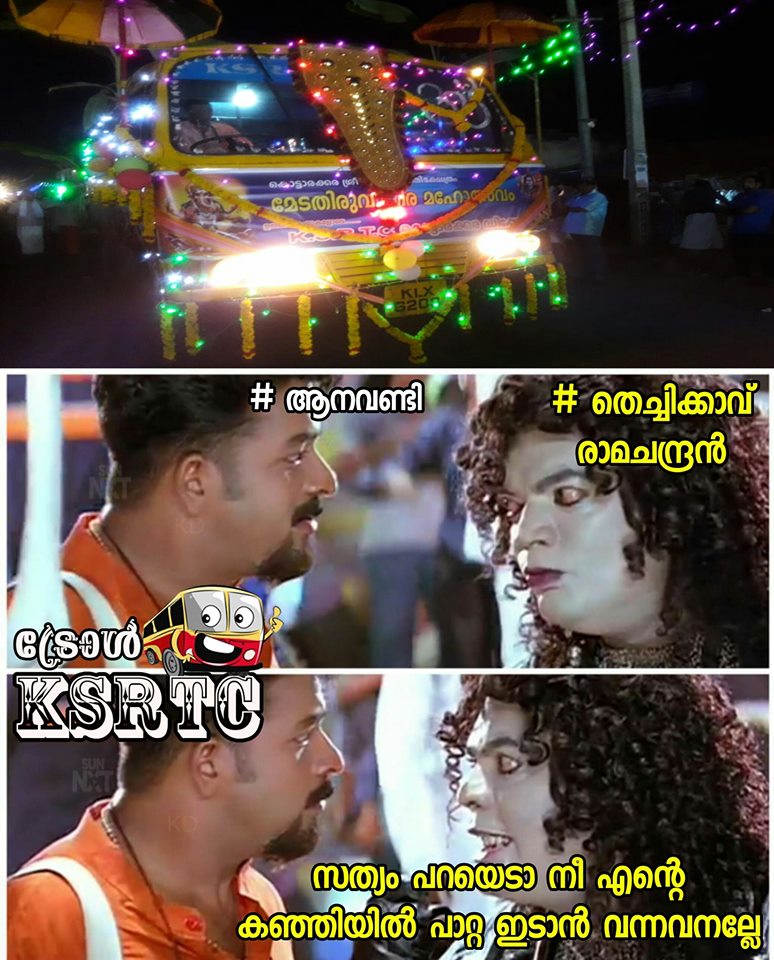
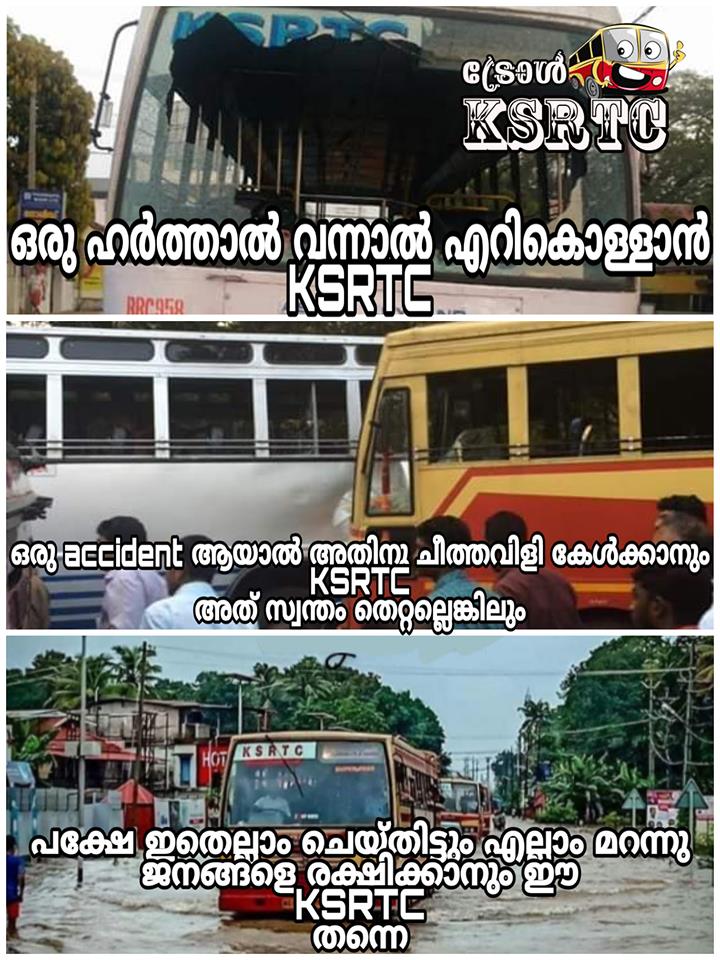

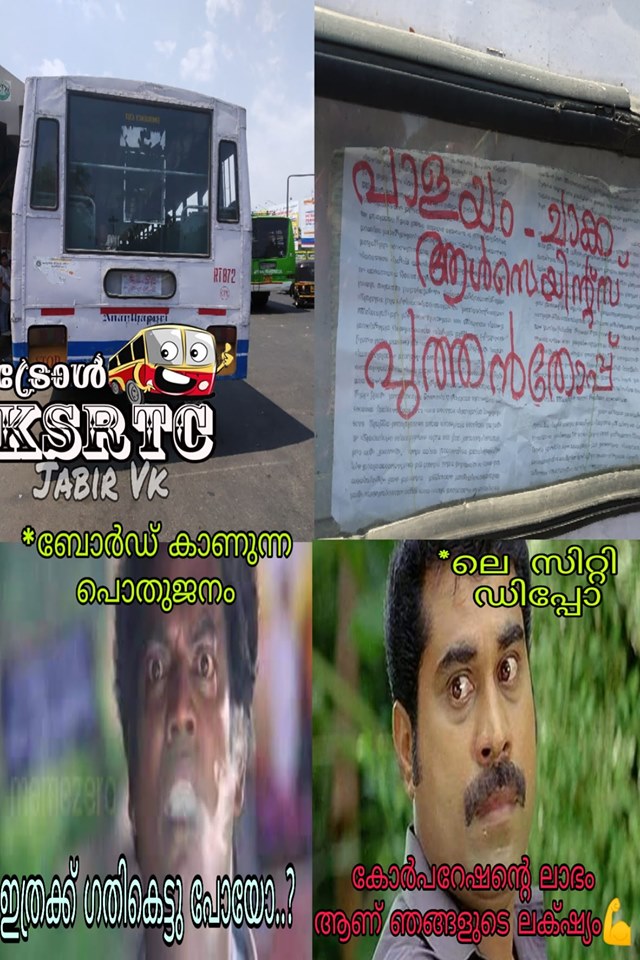



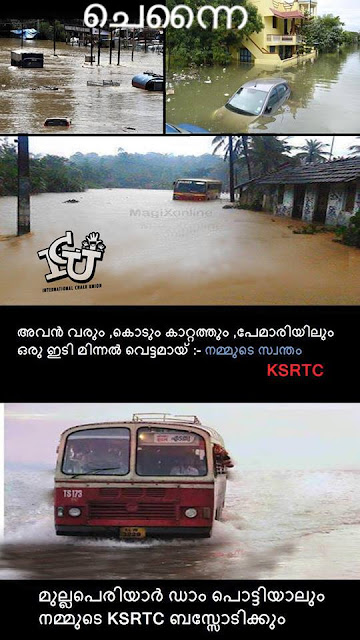



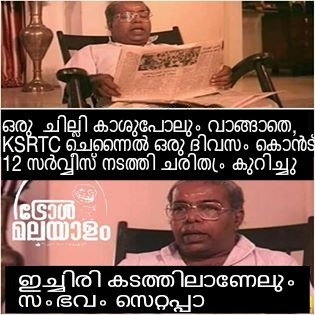
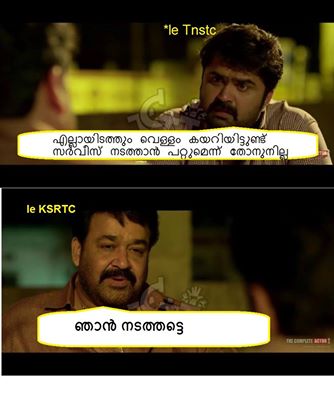



















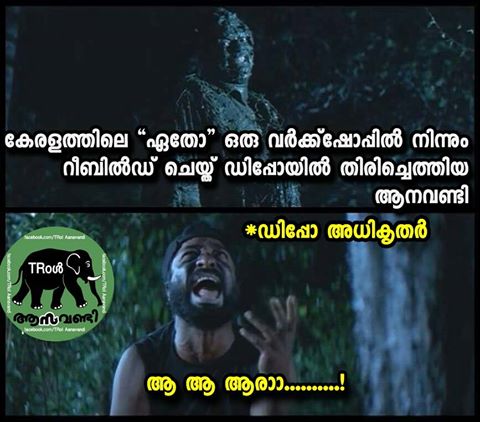








Credit : Troll Malayalam , ICU , Outspoken , Troll Aanavandi, Troll KSRTC & Others
In Internet slang, a troll is a person who starts quarrels or upsets people on the Internet to distract and sow discord by posting inflammatory and digressive, extraneous, or off-topic messages in an online community (such as a newsgroup, forum, chat room, or blog) with the intent of provoking readers into displaying emotional responses and normalizing tangential discussion,[3] whether for the troll’s amusement or a specific gain.
Both the noun and the verb forms of “troll” are associated with Internet discourse. However, the word has also been used more widely. Media attention in recent years has equated trolling with online harassment. For example, the mass media have used “troll” to mean “a person who defaces Internet tribute sites with the aim of causing grief to families”. In addition, depictions of trolling have been included in popular fictional works, such as the HBO television program The Newsroom, in which a main character encounters harassing persons online and tries to infiltrate their circles by posting negative sexual comments.
Application of the term troll is subjective. Some readers may characterize a post as trolling, while others may regard the same post as a legitimate contribution to the discussion, even if controversial. Like any pejorative term, it can be used as an ad hominem attack, suggesting a negative motivation.
As noted in an OS News article titled “Why People Troll and How to Stop Them”, “The traditional definition of trolling includes intent. That is, trolls purposely disrupt forums. This definition is too narrow. Whether someone intends to disrupt a thread or not, the results are the same if they do.” Others have addressed the same issue, e.g., Claire Hardaker, in her Ph.D. thesis “Trolling in asynchronous computer-mediated communication: From user discussions to academic definitions.” Popular recognition of the existence (and prevalence) of non-deliberate, “accidental trolls”, has been documented widely, in sources as diverse as Nicole Sullivan’s keynote speech at the 2012 Fluent Conference, titled “Don’t Feed the Trolls” Gizmodo, online opinions on the subject written by Silicon Valley executives and comics.
Regardless of the circumstances, controversial posts may attract a particularly strong response from those unfamiliar with the robust dialogue found in some online, rather than physical, communities. Experienced participants in online forums know that the most effective way to discourage a troll is usually to ignore it, because responding tends to encourage trolls to continue disruptive posts – hence the often-seen warning: “Please do not feed the trolls”. Some believe this to be bad or incomplete advice for effectively dealing with trolls.
The “trollface” is an image occasionally used to indicate trolling in Internet culture.
At times the word is incorrectly used to refer to anyone with controversial, or differing, opinions. Such usage goes against the ordinary meaning of troll in multiple ways. While psychologists have determined that the dark triad traits are common among Internet trolls, some observers claim trolls don’t actually believe the controversial views they claim. Farhad Manjoo criticises this view, noting that if the person really is trolling, they are more intelligent than their critics would believe.



















